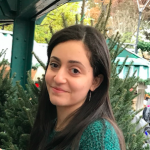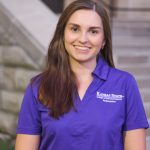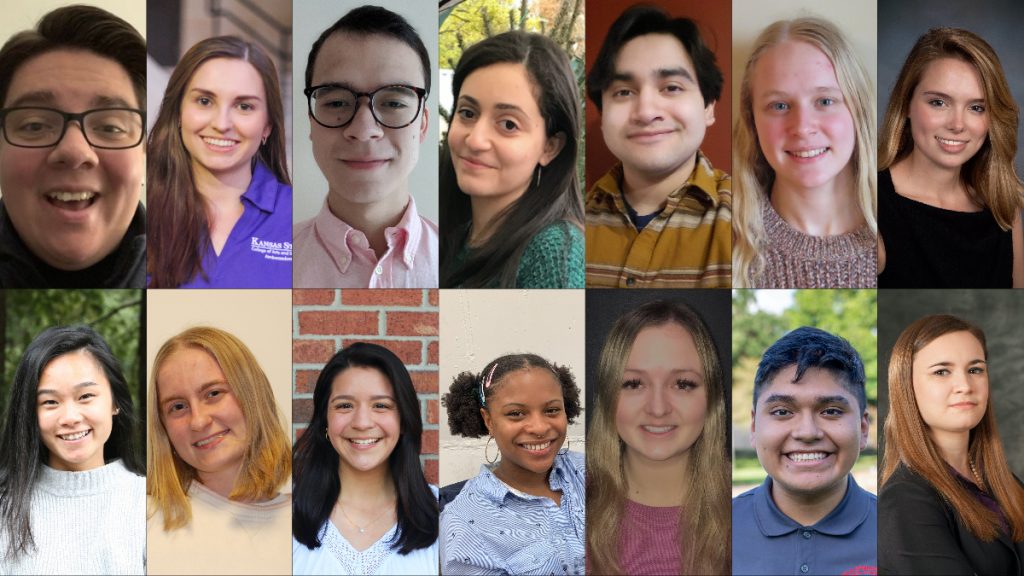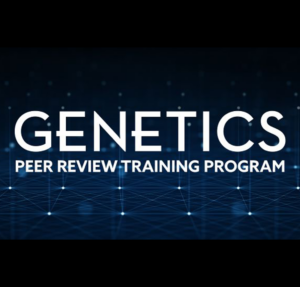The Victoria Finnerty Travel Award supports travel costs for undergraduate GSA members who are engaged in research to attend the Annual Drosophila Research Conference, which was to be part of TAGC in 2020. Due to TAGC moving to an online format, 2020 awardees will instead present their work virtually at TAGC Online.
Victoria Finnerty, who died in February 2011, was a long-time member of the Genetics Society of America and served the Drosophila community and the genetics community at large in many capacities. A wonderful geneticist, Vickie’s ground-breaking work as a graduate student used high-resolution recombination analysis to dissect gene structure. This set the stage for a 35-year career in which she excelled as a gifted teacher as well as research scientist. Vickie was also a wise and compassionate mentor and teacher for whom interactions with her students was a constant joy. She constantly sought new ways to engage undergraduates in their genetics courses and in research; this travel fellowship fund continues Vickie’s stellar example.

Brooke Allen, University of Detroit Mercy
My work studies how yorkie facilitates cell survival during larval eye development of Drosophila melanogaster.

Corinne Croslyn, University of Evansville
My work investigates Asteroid, a predicted nuclease, in Drosophila oogenesis and DNA repair.

Dalia Fainberg, CUNY Baruch College
We use high resolution confocal microscopy to map the somatic muscles of the head in Drosophila, and we compare the morphology of head muscles in wild-type and mutant genetic backgrounds using fluorescent transgenes and antibodies.

Nate Fischer, Marquette University
I am investigating the role of the drop-dead gene in the formation of the cuticle in Drosophila larvae.

Nicole Folan, College of the Holy Cross
I research a gene, pickpocket 29 (ppk29), that encodes for a subunit of a DEG/ENaC, a non-voltage-gated sodium channel, and investigate its expression and function in both neurons and glia throughout the nervous system.

Jillian Gomez, University of Tampa
I am characterizing a X-linked mutation that causes female sterility in fruit flies.

Isabella Hanesworth, Mercy College
Our research aims to idenitify telomere regulating genes in Drosophila melanogaster.

Jordyn Moaton, University of Missouri – Columbia
The purpose of my project is to study the underlying genetic mechanisms of starvation resistance using Drosophila melanogaster as a model.

Anthony Ruiz, Bemidji State University
My work aims to understand how carbohydrate regulation through genetic and environmental backgrounds.

Joshua Sikder, University of North Carolina at Charlotte
I am analyzing the role that tandem duplication play in the evolution of Drosophila.

Efren Silva, University of Houston
We are studying P-elements in dysgenic ovaries of fruit flies to uncover the genetic architecture of transposition.

Marta Stetsiv, Kansas State University
NUAK and interacting proteins are implicated in aggregation phenotypes associated with muscle defects in Drosophila.

Anastasia Welch, Rhode Island College
My research involves visualizing genetic modifiers of aggregation in a Drosophila model of ALS.

Joey Wong, University of California, Santa Cruz
My project strives to assess the role of the p3 peptide, an alternative fragment made in the amyloid precursor protein metabolic pathway, in Alzheimer’s disease pathogenesis.




